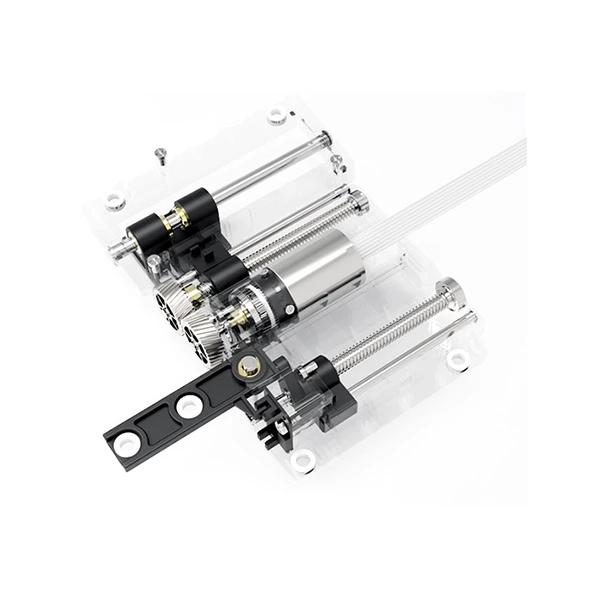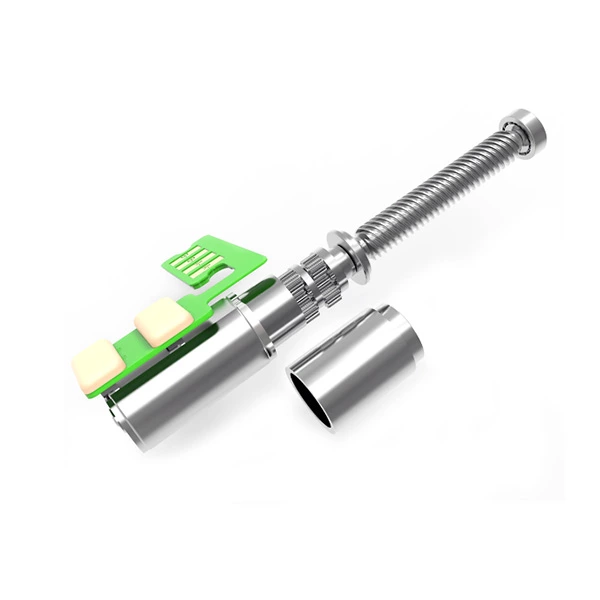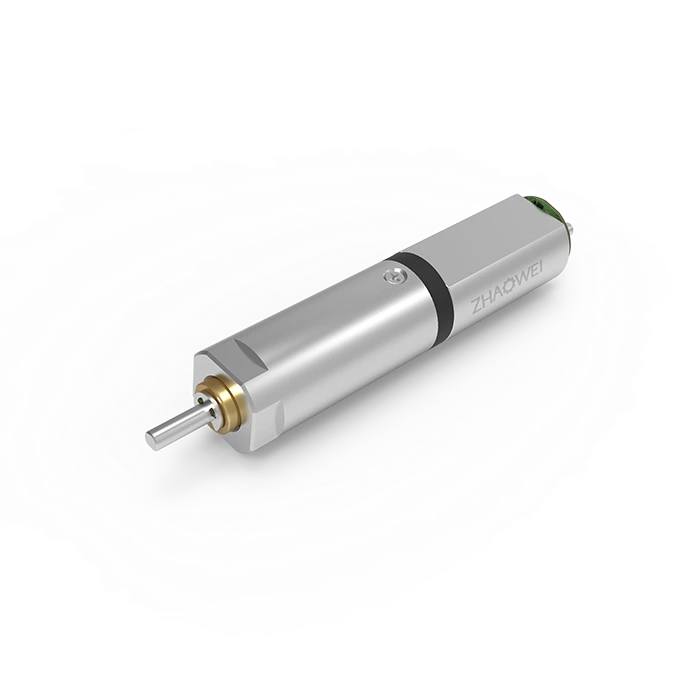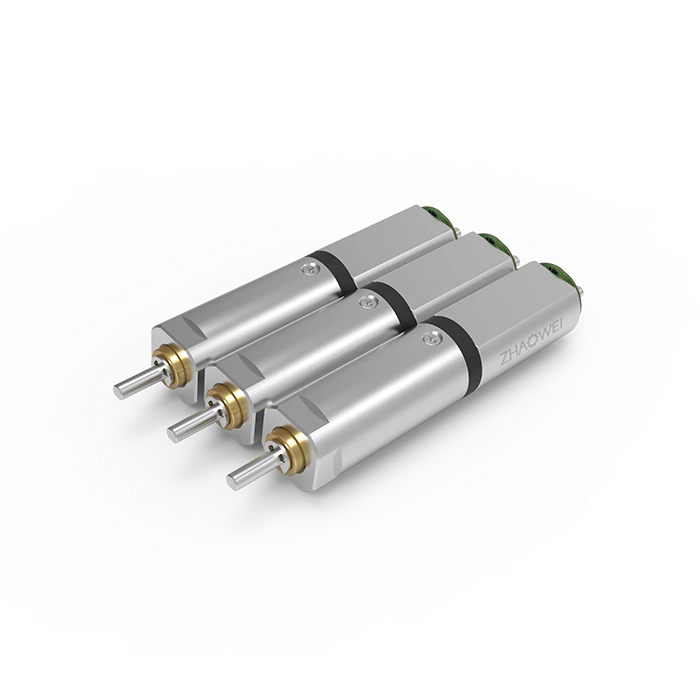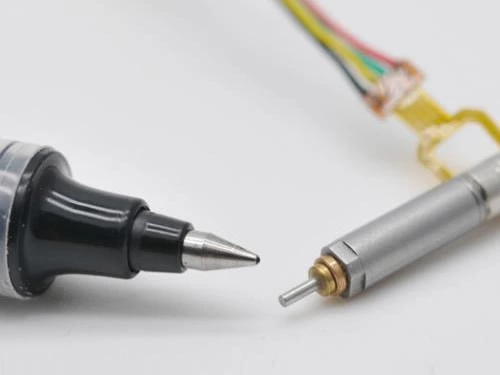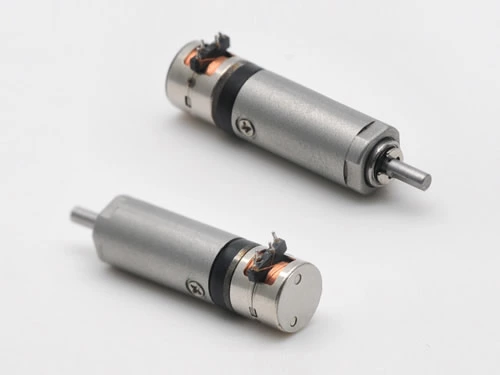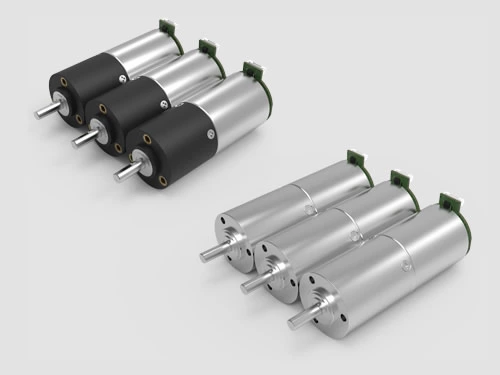What Affects the Efficiency of Planetary Gear Motor?
Planetary gear motors are widely used decelerating transmission equipment with a higher efficiency than general motors. While the planetary gear motor is being used, it is necessary to maintain it to improve its working efficiency. For this reason, it’s important to know the factors that could affecting the planetary gear motor’s efficiency. We’ve listed some examples below.
1.When the precision planetary gear motor is being used, its core is located in the alternating magnetic field, which produces core loss. The winding will also produce copper loss as well as other losses when the current is switched on. All these will lead to a temperature increase of the gear motor. The gear motor itself has a thermal dissipation function. When the heat generation is equal to the thermal dissipation, it will be in a state of balance. If the temperature suddenly rises to break the balance, it will make the temperature continue to rise, affecting the gear motor’s operation.
2. Temperature rise refers to the temperature difference between the precise planetary gear motor and the environment, which is generally caused when the gear motor generates heat. Temperature rising is an important index in the use of the gear motor, as it clearly shows its heating degree. During operation, a sudden temperature rise means that the gear motor has failed, the vent is blocked, or the gear motor is overloaded.
3. Operating temperature refers to the temperature at which the precision planetary gear motor operates during service. If the operating temperature exceeds the specified temperature for a long time, it will accelerate the aging of insulation material, thus greatly shortening the service life of the gear motor. This is why temperature is one of the main factors affecting the service life of the gear motor.
4. Gear set loss. Depending on the type of gear set, the efficiency loss may have a slight or significant impact. The loss of spur, helical and bevel gears will decrease from 0.5% to 3%, while the loss of tooth surface gears and bevel gears may be as high as 5%. The hypoid and plane will lose 2%-10% efficiency. Gear sets that may exhibit higher efficiency losses include: cross spiral (5%-50%), cylindrical worm and high-speed hypoid (10%-50%), double-envelope worm and spiral (2%-50%), and spiral body (3%- 50%).
5. Seal loss. The seals are used to prevent the lubricating oil from escaping from the planetary reducer and to avoid penetration by external dust. The static seal used between the housing parts does not affect the efficiency of the planetary gear motor. However, dynamic seals affect efficiency because they are in contact with rotating components (usually shafts). When the shaft rotates in a fixed seal, friction and heat can reduce efficiency. In order to eliminate the influence of friction, it is vital to lubricate the area between the shaft and the seal. It should be noted that different seal types will impose different resistance on the shaft. For example, a double-lip shaft seal will have a higher level of ingress protection but will apply more friction than a single-lip seal. Applications that use O-rings as rotary seals may have greater losses than the double-lip shaft seal.
6. Bearing loss. There are many different types and styles of bearings, but the one that’s most effective is a roller bearing without seals. Many different types of seals can be added to roller bearings, which may increase a certain degree of resistance, thus reducing the efficiency of the overall planetary gear motor. Many different types of bearing greases can also be used and may affect efficiency, depending on the viscosity of the grease. Other bearing types that are less efficient include powder metal bronze, iron bushings and molded plastic bushings.
7. Lubricate the planetary gear motor with grease or oil. There are many changes in grease and oil, such as high or low temperatures, extreme pressure, water resistance, corrosion resistance, etc. A key factor that may affect the micro planetary gear motor efficiency is the viscosity of the lubricant. As the lubricant becomes more viscous or thicker, the temperature drops and more resistance is introduced into the planetary gear motor, thereby reducing its efficiency. The situation is opposite when the temperature rises. The viscosity of the lubricant decreases and the lubrication becomes thinner, thereby increasing the efficiency of the planetary gear motor. Lubricant filling and the amount of lubricant added to the planetary reducer also affect efficiency. Excessive lubrication in a high-speed planetary reducer can cause agitation, resulting in excessive heat generation and efficiency loss. However, insufficient lubrication can cause excessive wear.







